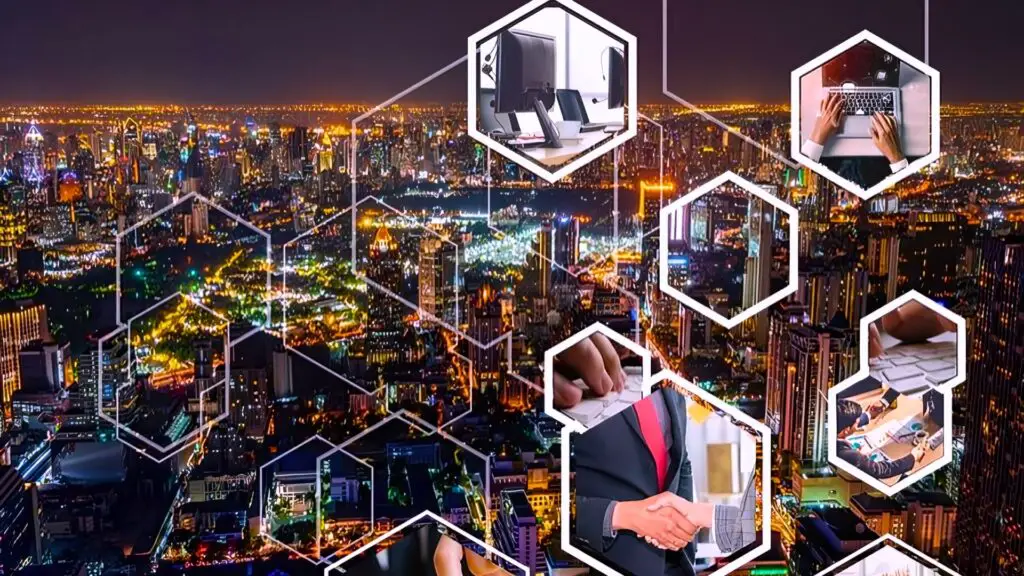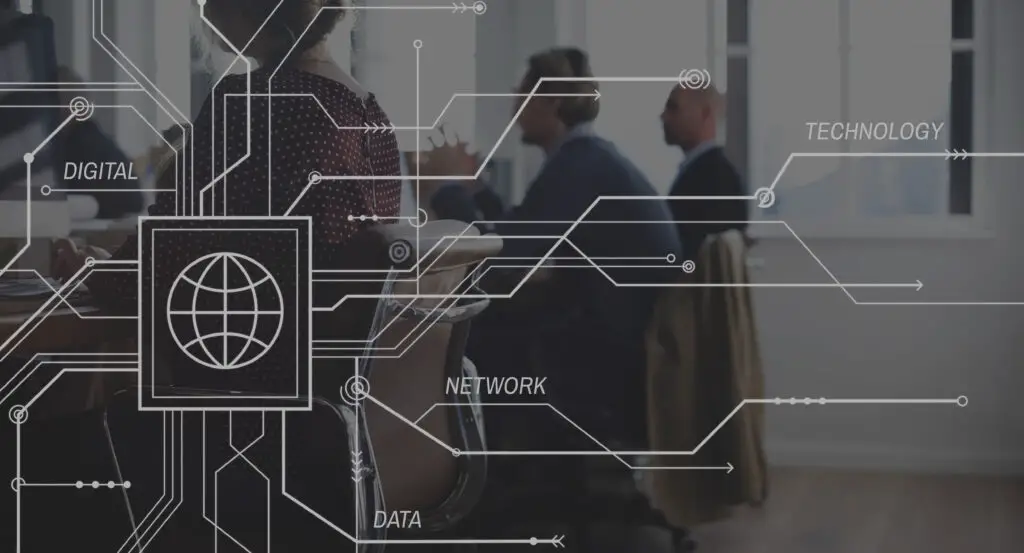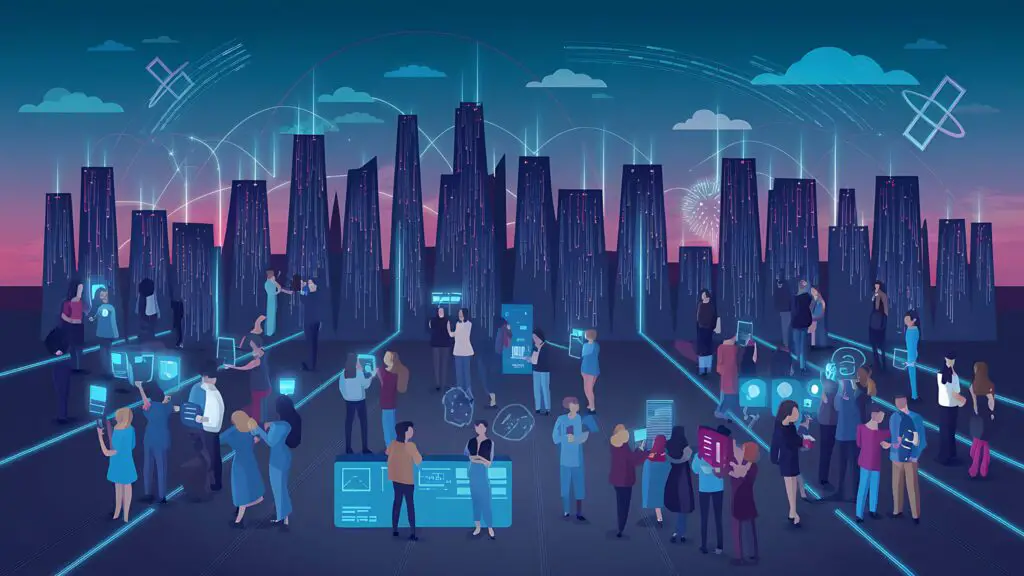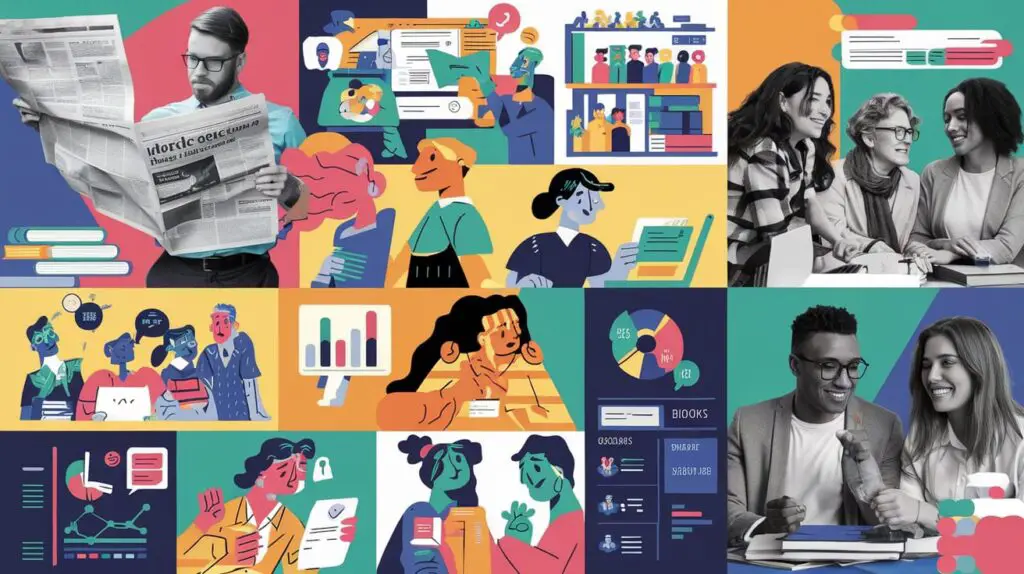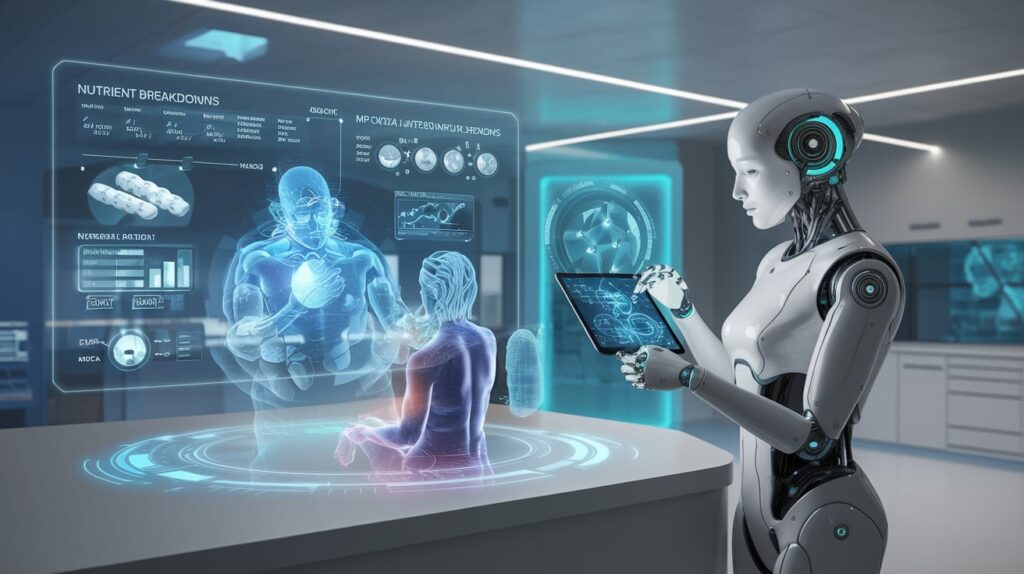Introduction
The emergence of the digital age has changed society that was unimagined few decades ago. These days, technology is practically a part of every day and our interaction with the surroundings has been drastically changed. The growth of an informed society becomes even more crucial for countries to flourish and fulfill modern challenges in such a interlinked world. Digital literacy, critical thinking, and decision-making play vital roles in developing informed society and thereby raise capacity to use the transformative potential of contemporary Technology Tools.
Table of Contents
Toggle1. To understand informed societies, it is important that we should understand that what is information and knowledge. One could say that examining the idea of “knowledge or information” right away raises difficulties because of its inherent uncertainty and several uses. The term itself is employed in several ways, hence a single definition is elusive.
Michael Buckland information theories provide a succinct and useful overview of the several interpretations of “knowledge” and associated words. Though the definitions may not be perfect and the lines separating them may be hazy, Buckland 1991 used a pragmatic approach by studying and spotting common groups of the term’s applications. Using this strategy, Buckland found three main applications for the term “information or knowledge”. It also recognizes that there could not be a clear, universally correct understanding of the term.
- One can see information as a process whereby the act of informing results in a change in knowledge. It is the sharing and communication of facts or events, so acting as information delivery or reception.
- Furthermore, knowledge can be seen as information itself, including what is observed and acquired by means of the above-described procedure. Acting as intelligence or news, it shows the knowledge and awareness acquired on particular facts, subjects, or occurrences. Though it is worth mentioning that information can occasionally contribute to greater uncertainty, the concept of information lowering uncertainty can be regarded as a particular feature of this more general notion of “information-as-knowledge”.
The term “information” can also be employed to characterize physical objects like records and statistics. These items are called information since they have the ability to be instructive, capable of spreading knowledge and sharing information, thereby finally fulfilling an educational use.
2. The highlights of another eminent thinker, Frank Webster, include “the idea of “information” which is fundamental for comprehending the social changes brought about by the spread of information and communication technologies (ICTs).
In this sense, information is data that, within a certain social and cultural setting, has been processed, arranged, and made significant. Considered as a valuable resource produced, shared, and absorbed by several media, technologies, and human communication is information. It covers news, entertainment, knowledge, and cultural expressions among other things. Webster’s information search probes several important facets that are: –
1. Information as a product:
Information is sometimes seen as a valuable commodity inside the information society. As produced, packaged, and traded as a marketable good, information has financial consequences. The monetization of knowledge is largely influenced by media sectors, copyright rules, and intellectual property rights.
2. Information a power projection tool:
Information’s production and control involve power dynamics by nature. Media companies and other strong players control the information flow and interpretation, therefore influencing public opinion and society dialogue. Information thus plays a part in forming social disparities and power systems.
3. Information and technology:
Information in the informed society is entwined intimately with communication technology. Information generation, distribution, and consumption have significantly changed owing to ICT developments.
4. Information and Cultural Associations:
In terms of culture, knowledge shapes symbolic systems and meaning building process. Discourses, representations, and cultural objects all have information imbedded in them. By means of information distribution, media shapes cultural identities, values, and norms.
Describing Information Societies
Prominent scholars debate the several facets of information societies and interpret them in terms of economic production, social interaction, or other innovative processes but they neglect to explain why information is important for societies and is progressively central in today’s world, to the extent that it is thought to be bringing in a new type of society. Frank Webster distinguished five forms of interrelated definitions of informed society.
1. Technological context:
From a technological standpoint, one emphasizes a spectrum of developments that have come about since the late 1970s. Often taken as foreshadowing the emergence of an information society, these new technologies are clear markers of changing times. Among such technologies are television, fast internet, online information services and associated tools.
Agricultural revolution, industrial revolution, information revolution, knowledge and communication technologies revolution are the main periods of technological evolution that can be distinguished. Prominent people claim that changes in telecommunication are forcing a new order on an unprepared globe. They assert that individuals excluded from these so-called information superhighways could suffer possible disaster and that the future is being formed within them.
2. Economical context:
From economic point of view, increase in economic value brought by informational campaigns is on a rise. Logically, one can declare the creation of an information economy based on an increase in the percentage of gross national product produced by the information industry. One can deduce that an information society has evolved when a sizable fraction of economic activity is driven by initiatives connected to information rather than sectors like subsistence farming or industrial manufacturing.
3. Spatial context:
Although this unique knowledge of the information society combines aspects of sociology and economics, it gives great relevance to the spatial component, shaped by geographical viewpoints. Information networks that link several sites, emphasis to help to shape the organization of time and space.
This point of view has become somewhat well-known in recent years since knowledge networks have become clear markers of the information society and major component of social organization. Information networks are increasingly important since they enable links between many sites, from local workplaces and towns to regions, continents, and even the whole globe. Like the power grid, which spans a whole nation and is available to everyone via suitable connections, we can see a “wired society” running worldwide.
4. Cultural context:
Though least quantified, the last viewpoint of an information society is probably the most easily understood. Based on our everyday experiences, every one of us personally knows that the volume of knowledge being shared in society has increased remarkably. Unquestionably, there is a lot more knowledge available now than it was a few years ago. Clearly, the modern society is more information-oriented than earlier ones.
We live in a media-rich environment where existence is centered on symbolizing, the continuous reception and interpretation of messages about people and objects. Acknowledging this overwhelming abundance of meaning, many authors see it as a distinguishing feature of our entering into an information culture.
Analysis
These concepts have few things in common one is the conviction that the growing amount of knowledge is resulting in a fundamentally different kind of social system called the information society. Since the present era contains more information and it is assumed that we are living in an information society, each definition basically makes sense in conjunction with each other.
Hence, we can say that an informed society is a collective state in which its members have a wide range of knowledge, critical thinking skills, and access to trustworthy information enabling them to actively participate in social, political, and cultural events and make well-informed decisions. In an informed society, people may acquire, assess, and comprehend many points of view, data and evidence, therefore forming their own ideas and meaningfully engaging in public conversation.
Informed societies and modern digital landscape
- Over years, human behaviors have significantly changed. The hallmark of human civilizations has always been development of capacity and ability to adapt depending on particular requirements and challenges of time.Technological development has connections to human behavior evolution. Given the great extent of change the revolution in science and technology brings about, it becomes critical for us to understand the great influence it has had, continues to have, and will persevere in having on our human capital behavior. Particularly, modern technology developments in the twenty-first century are fast and multi-dimensional and human beings require particular skill-sets to cope with this diversity.
- With the Fourth Industrial Revolution, a great promise for increased development and society improvement surfaces. Rooted in digital platforms, this transforming revolution stands out for a convergence of technologies that removes the boundaries separating the physical, digital, and biological domains. Unless society are adequately informed to generate the favorable impacts of technology, the new paths for development in the future could lead to major social problems. Therefore, it is vital to grasp the fundamental traits of civilizations that are well informed and equipped to manage complexity of modern world.
Fundamental Characteristics of Informed Societies
1. Understanding of Processing of Data:
Informed societies should have knowledge and abilities associated to information processing. This covers capacity for efficient analysis, interpretation, synthesis, and application of knowledge. People must be able to critically assess the validity and prejudices of sources, separate fact from false information or disinformation, and base reasonable decisions on the data at hand.
Processing data calls for logical reasoning, critical thinking, and the capacity to spot trends, connections, and consequences throughout the information terrain. It also covers the ability to arrange and convey data in a logical and significant way, so promoting good knowledge exchange and communication. Learning information processing techniques helps people to participate in intellectual debate in many spheres, solve problems, and make wise decisions.
2. Understanding Information Accessing Tools:
In an informed society, people have the tools they need to properly access knowledge. This covers the capacity to negotiate several information sources, including libraries, databases, web sites, and other repositories. Along with knowing several search strategies, using search engines, and applying critical assessment procedures to evaluate the validity and applicability of the acquired knowledge.
Effective navigation of the changing technological trends depends on reforms inside the educational system. New media have transformed the availability of instructional resources and opened a great range of priceless learning tools. Actually, tens of millions of people all around are registered in online courses provided by companies like Coursera, Google Courses, and other prestigious online learning environments. Especially among youth, online courses emphasizing freelancing, social media advertising, and different digital skills have seen a significant increase in appeal.
Maintaining knowledge, making wise judgments, and participating in educated debates all depend on access to information. It enables people to stay current with events, investigate several points of view, and broaden their horizon. Equipping people with the competency to access knowledge in today’s digital age depends critically on the development of digital literacy skills, including information literacy.
3. Information Technology Access:
Access to information technology guarantees that people may actively participate in the information ecosystem, interact with digital content, and use digital tools to investigate, produce, and distribute knowledge. It helps people to interact with others, access enormous volumes of data, and add to the worldwide information system.
To become well-informed, one first must have access to media and information tools. Citizens used to keep informed by means of print and broadcast media access. Still, in the modern world, internet connectivity is becoming even more important. Though almost 2.0 billion individuals have internet connection, this represents a minority of the world’s population. Still a major problem is the presence of a digital gap marked by differences in ICT usage among several socioeconomic levels.
The risk is in the possible global development of a structural underclass. People must be able to access the tools and services required to enable them to become informed and competent users.
4. Media Literacy
People must have the skills and knowledge to evaluate the validity and reliability of material critically and separate objective facts from personal beliefs. Whether the material comes from traditional media sources or digital format, citizens have to be able to assess the information around them and understand its suitable background. In free societies, the conventional news sources are quite important in producing educated people. Traditional media’s editorial role is very valuable in providing essential information, doing thorough fact-checking, contextualizing news, and questioning readers’ presumptions by offering them important material they might otherwise have missed.
5. Investing in Human capital:
A strong and highly competent human capital is essential for promoting national integration, development, and higher production. By giving people’s well-being top priority, making sure they keep strong health, and arming them with technology skills and competencies, one can build such human capital. The real worth of human capital shows itself in the digital market by means of its capacity to create favorable results. Therefore, its development stems from education during the early years of a person’s life.
Continuum of knowledgeable Societies
The idea of informed societies is all-encompassing apart from information and literacy it covers knowledge, literacy, human capacity, decision-making, social behavior and technology. The initiator in the structural change of the society is knowledge. Education, training, absorptive ability, prior knowledge, knowledge flow, knowledge transfer, R&D capacity, and innovation define the fundamental base of informed societies.
Why intellectuals are important?
Every village, city, state, nation, and the world scene is equally dependent on thorough information distribution. Strong evidence emphasizes the importance of well-informed society in a knowledge-based economy. It is clear that intellectual ability adds value to economies instead of only physical power. The civilizations with the most sharply informed intellectual capacities will succeed in an ever more complex and unpredictable security environment.
Informed Societies as Key enablers for growth and development
1. Diversity and Implausibility:
Informed societies guarantee that a wide spectrum of viewpoints and voices are included into decision-making procedures since they understand the need of inclusiveness and diversity. To guarantee that a range of points of view are taken into account and expressed in the public debate, this covers representation of many backgrounds, identities, and opinions in government institutions, media, and other powerful venues.
2. Extended Education:
Emphasizing the ongoing search of knowledge, skills, and personal development across one’s whole life, Extended or lifelong learning is a philosophy and habit. It represents a dedication to self-improvement, flexibility, and intellectual engagement at any age, above and beyond traditional education.
Lifelong learning acknowledges that learning is a lifetime path that helps one to grow personally, advance professionally, and lead a happy life rather than a limited period or institution. In a fast-changing environment, residents must remain informed by means of lifelong learning, formal and informal education as well. Those who appreciate and participate in lifelong learning are more suited to adjust to shifting environmental, technological, and social dynamics as well as remain current with developing concerns and trends.
3. Dealing with false news and disinformation:
Informed human capital is more suited to separate fake news from facts. Media literacy and critical thinking ability help citizens to critically evaluate material and make wise decisions, therefore preventing the dissemination of false information and improving the general caliber of public opinion.
4. Civic Involvement and Nation Building:
Active civic participation and involvement give people chances to voice their thoughts, help to shape public debates, and participate in decision-making procedures. People who participate actively in civic events such public forums, advocacy groups, and community organizations are more likely to be knowledgeable about society issues and help to shape legislation.
Conclusion
In the modern word, informed societies are absolutely vital. Key elements of an informed society are access to correct knowledge, good communication, and critical thinking skills. We should be alert in our attempts to keep informed and current with the most recent technical developments as technology keeps developing, only then we will be able to really use technology for the benefit of society at large.
FAQs
The concept of "technology and society" explores the explores the ever evolving linkage between technological advancements and societal development. It examines how technology shapes human behavior, cultural norms, economic structures, and even the environment, while society, in turn, influences the direction and application of technological innovations
Technology plays a pivotal role in society by revolutionizing how we communicate, work, and live. It enhances efficiency, drives innovation, and creates new opportunities for growth and connectivity. However, it also presents challenges that require careful management and adaptation.
A technological information society is one where the creation, dissemination, and manipulation of information are central to economic, social, and cultural activities. In such a society, information and communication technologies are integral to daily life, shaping how individuals interact and access knowledge.
Technology profoundly affects society by altering social interactions, economic practices, and cultural norms. It can lead to increased productivity and connectivity, but also contributes to issues like digital divides and privacy concerns, necessitating ongoing adaptation and regulation.
The relationship between society and technology is reciprocal; technology influences societal structures and behaviors, while societal needs and values drive technological development. This interaction creates a feedback loop where each continuously shapes and redefines the other.
